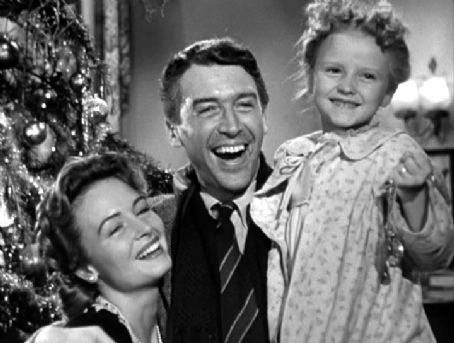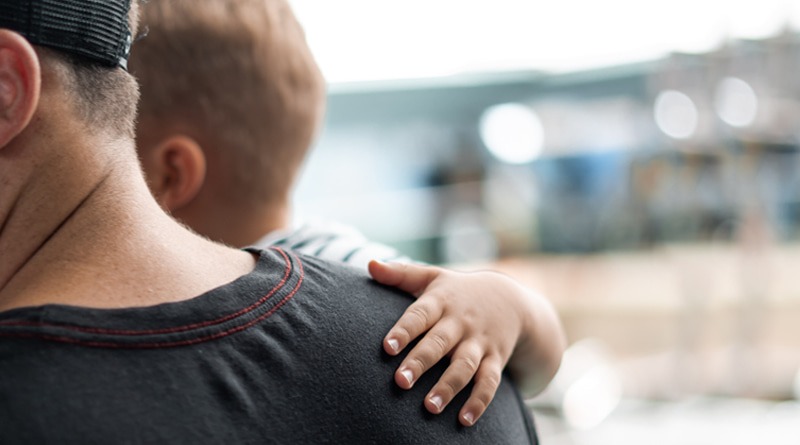
It’s a Wonderful Life: Autism and the Holidays
By Alicia Palelis
 It’s a Wonderful Life, remember that holiday movie? It brings me so many positive memories of the holiday season. But if you are a parent in the middle of the holiday season with your child in crisis, you may not have the same sentiments…
It’s a Wonderful Life, remember that holiday movie? It brings me so many positive memories of the holiday season. But if you are a parent in the middle of the holiday season with your child in crisis, you may not have the same sentiments…
The holidays are a time that can bring great joy or much stress to you and your family. If you have a family member with autism, the holidays can (but not always) be a very stressful time. This is due to the fact that their traditional routines are not followed. Everything about their lives may be thrown upside down! At school, they are having holiday shows (that the child may be pushed to perform in), they are doing “fun” holiday activities which throws off their school schedule. They may be having Turkey Trots and Jingle jogs- which are supposed to be “fun” activities to a “typical child.” But to children or people with autism, all of these changes in their routine bring great unknowns and therefore much anxiety. And then no school for two weeks! On top of all of the changes at school, there also changes at home. Their home may look different due to the new bright, flashing decorations that were recently put up. They may have family members visiting, or they may be traveling to see family members. There may be holiday parties or celebrations that don’t typically occur. There are the feasts, dinners, and food that your child may not be accustomed to eating… And then of course the presents- the presents they perseverate over wanting Santa to bring or wanting for Channukah. Or the dreaded gift exchange- they tear open the gift only to realize the gift grandma gave them, they hate… And now grandma’s feelings are hurt… These are just some of the difficulties that may or may not occur during this holiday time. But, I’m here to tell you, it’s not all hopeless.
There are steps you can take to make this the enjoyable season that it is meant to be. You can “Deck the Halls” in your home and sing “Joy to the World” if you take into account the needs of your own child, and prepare.
- Create a calendar of events- if your child cannot read you can use google images or clip art and tape or glue them to your calendar. However, if your child perseverates over upcoming activities, you may not want to do it too far in advance. You know your child best, so determine which timing is best. Add to the calendar any trips, any visitors (when they come and go), and parties or events (at home and school), and/or any event that your child needs to know about that may be different than their typical week. Show them when school finishes and when it will start again. You may also want to implement a visual schedule into their two week vacation so they know what they will be doing during their day without school. This will alleviate much anxiety as they will see on their schedule what is occurring in their day.
- Know if your child has difficulty with change in their environment. If so, decorate the house slowly, step by step, and have your child participate in the decorating to the best of their ability and interest level. Make it a fun family activity. Have them pick out what decorations they want to put up and where- maybe give them choices of where to put the item. Be sure of sensory sensitivities. The bright flashy lights may not be the best pick if your child is sensitive. If they have a lot of difficulty with change, you may want to create a visual schedule of the different items and the order that they will be put up in their house. For example, 1-Christmas tree, 2-lights, 3-ornaments, 4-stockings… Do the same thing for the removal of the decorations. It may be difficult for them to see the decorations go as much as it was when you started the process.
- If your child perseverates over a particular item or toy that they want, you may need to limit their access to viewing the item online or at a store, or even limiting the amount of times they are allowed to talk about it. If you talk to them about the item, it only feeds into their perseveration. However, you want them to know you are excited about it too, so allow them a few minutes each day to talk about it. You may need to create a social story to help them understand and remember this. Another topic related to gifts, is practicing how to open a gift and what to say even if you do not like the gift. Social stories, scripts, and role playing are very important in preparing your child, so that no family member’s feelings get hurt. Also, providing family members with gift ideas will help them greatly too.
- If you have family members visiting or if you are going to family or friend’s houses, be sure to brief the others about your child- does he like to be hugged/not hugged, topics your child loves to talk about, … Also, be sure to remind your child of what to do if he gets overwhelmed and needs a break. Be aware of the signs of your child getting overstimulated to prevent any meltdowns.
- If you are traveling on a plane- be sure to tell the airline about the needs of your child. There are lots of children’s books available to read to your child about what the plane ride will be like. Make Create a goodie bag of your child’s favorite snacks, new activities that your child has never seen or had limited access to, as well as some of their favorite familiar activities a goodie bag of their favorite snacks, novel activities, as well as some of their favorite activities. A social story is a great read for the expected behaviors for them on the flight and what can they expect.
Most important, try to take time to remember that this holiday season is supposed to be fun. Your family’s fun may be different from someone else’s and that is ok. Utilize this time to create positive happy memories. It may be important for you to get a babysitter or respite so you have time to enjoy the season with less stress. Remember- it IS a Wonderful Life.
Other resources on Holidays and your child:
www.jgateways.org/Resources/Chanukah
www.positivelyautism.com/free/unit_christmas.html
Alicia Palelis has been an autism coach for Broward County Schools for 12 years. She received her bachelor’s and master’s degree at the University of Florida, specializing in early childhood and special education. She is presently overseeing three new programs in the southwest area. She has dedicated her professional career to helping improve the lives of children on the autism spectrum.




